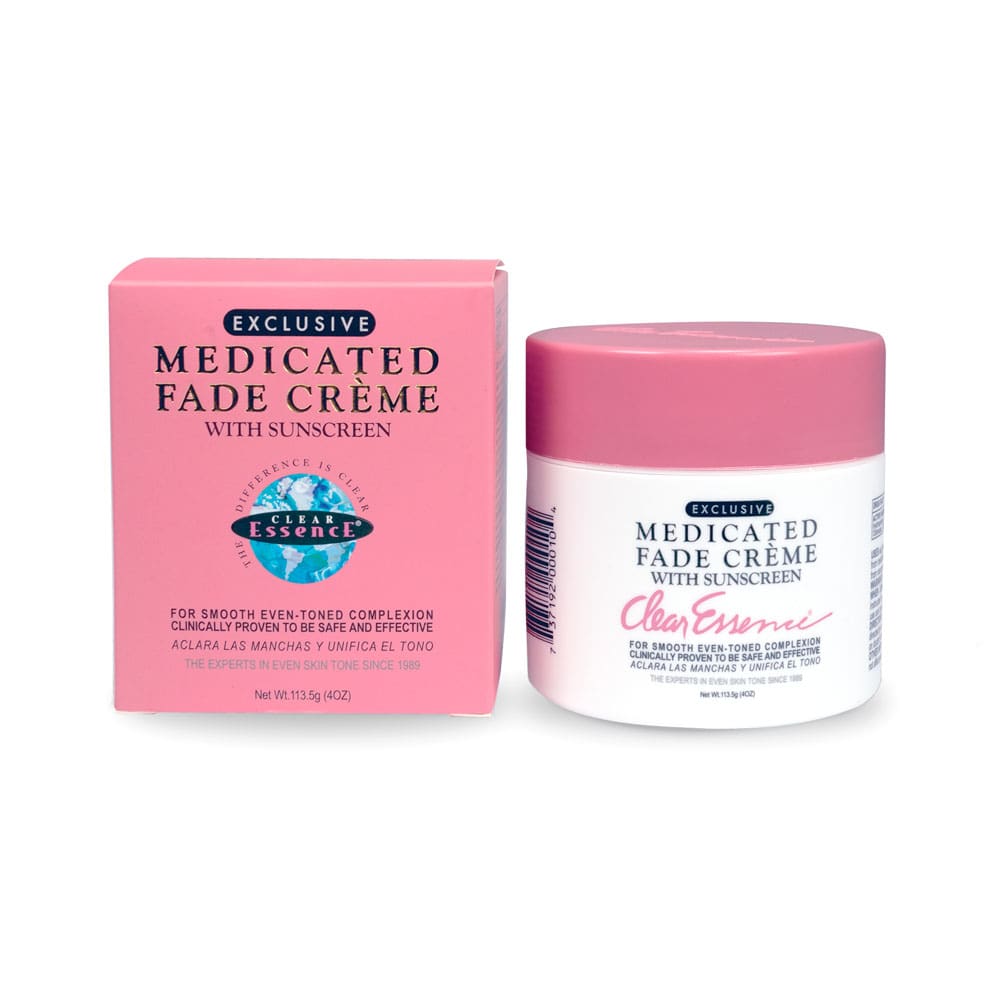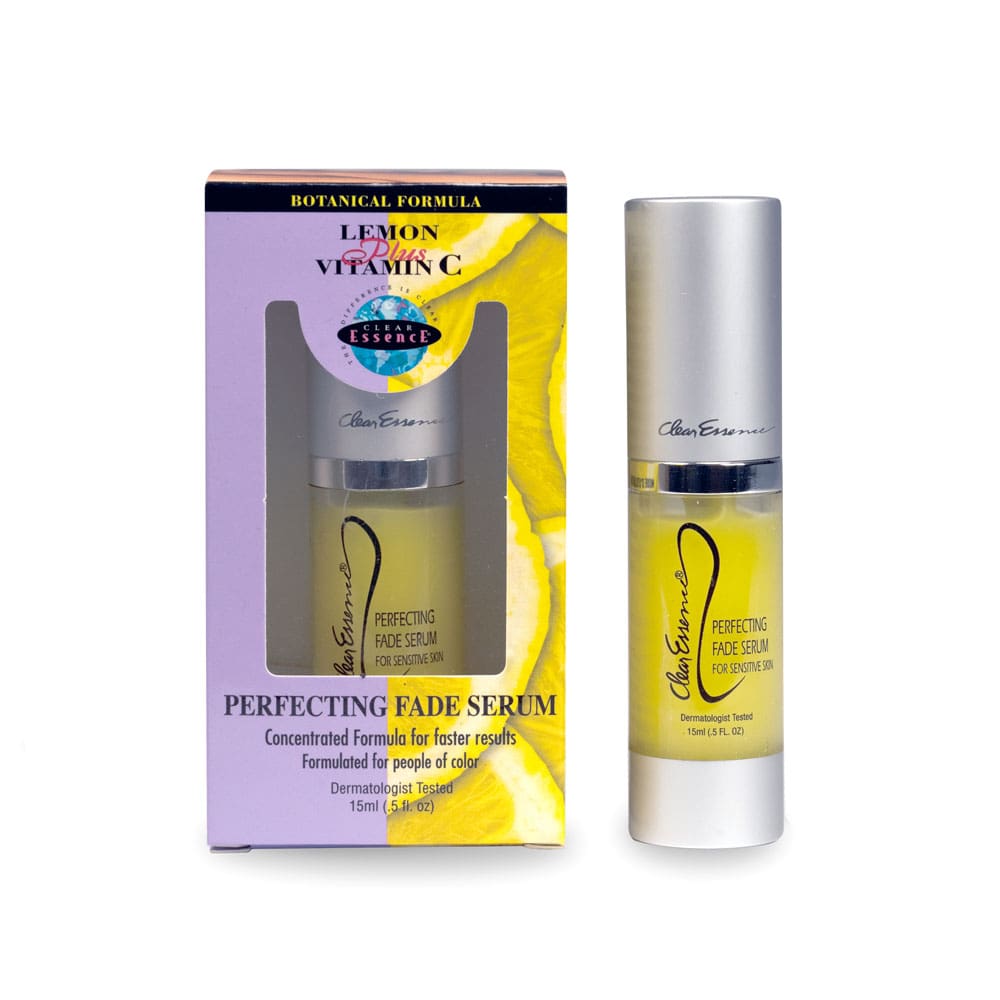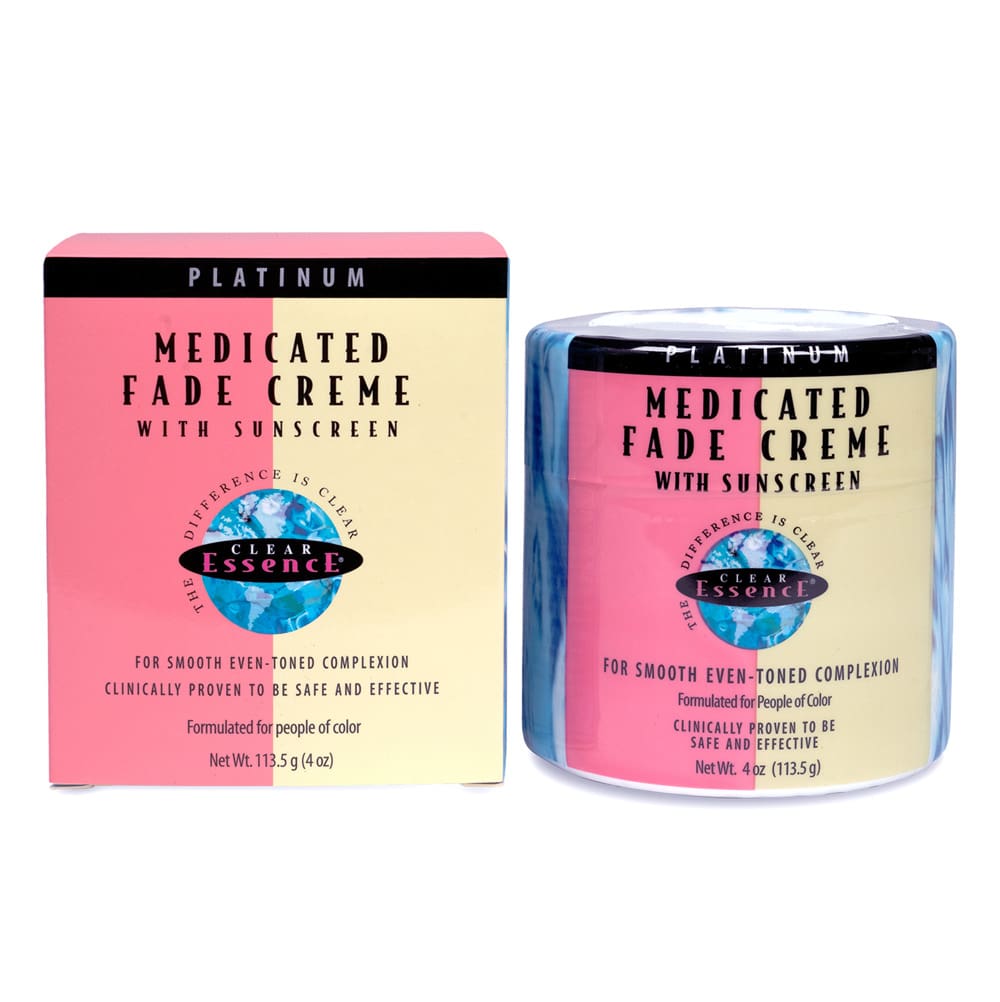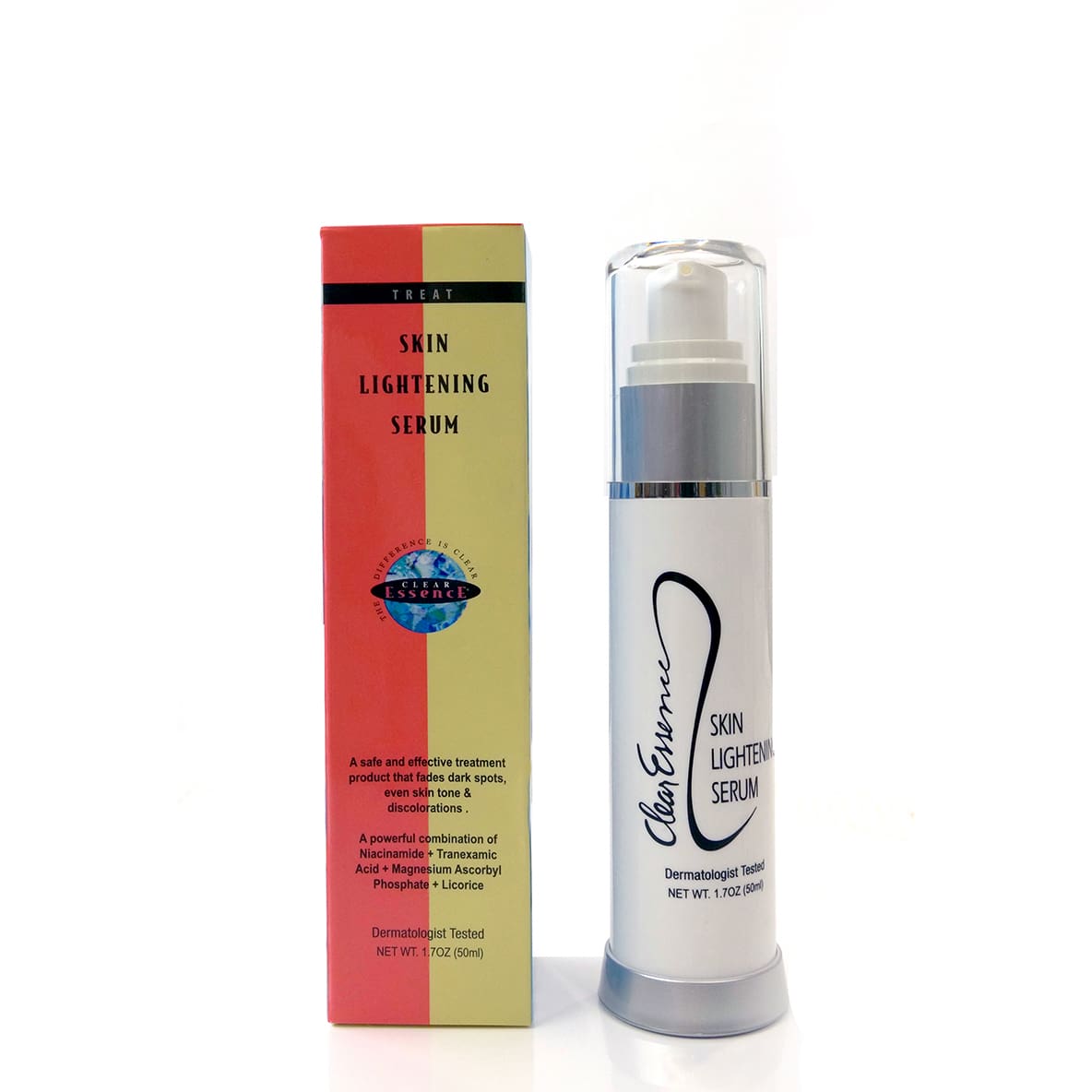Black skin is undoubtedly beautiful, particularly when well taken care of with the best products for hyperpigmentation in black skin.
However, despite your best efforts at strutting around while displaying your dark skin proudly, blackheads, pimples, acne, and other skin inflammations can pop out to dampen your glow.
These uninvited skin patches can discolor the skin and render it hyperpigmented. Aside from disfiguring the skin, they can also keep us holed up in our shells avoiding outdoors or masked up like a retired superhero, trying desperately to avoid sympathetic glances from the public eye.
In this article, we will discuss the best products for hyperpigmentation in black skin. But let’s start with the definition of hyperpigmentation – what is it?
Best Hyperpigmentation Treatment for Black Skin
What Is Hyperpigmentation on Black Skin?
Hyperpigmentation develops as a result of some sections on the surface of the skin getting darker than other areas. Thus, it derived the tag – “dark spots”. Black skin is blessed with an abundant supply of melanin.
Melanin is a natural pigment found in the body. It is responsible for giving color to the hair, skin, eyes, etc.
Unfortunately, this melanin tends to be the cause of skin discoloration because it is usually released in excess when required. When certain conditions affect the skin, like a wound for instance, during the healing process, melanin is released.
Because black skin has more melanin deposits than other skin types, overproduction of it often happens leading to hyperpigmentation.
Although hyperpigmentation is highly treatable, dark-skinned individuals have to be careful when treating the condition to avoid worsening the discoloration.
This article will cover tips on how to prevent hyperpigmentation as well as the best products for hyperpigmentation in black skin.
Types of Hyperpigmentation on Black Skin
Hyperpigmentation is a bane on the skin of many African-Americans. Before you start treating it, it is important to know the type of hyperpigmentation you have first.
The most common types of hyperpigmentation include sunspots, melasma, and post-inflammatory pigmentation.
Sunspots
Also referred to as age spots or solar lentigines, sunspots occur frequently among people who are constantly exposed to sunlight. These spots can appear on the hands, face, or generally, any surface of the skin subjected to continuous ultraviolet exposure.
They come up as a result of attempts by your skin to protect itself from further sun damage. As a result, the age spots or sunspots form little, dark patches on the skin.
According to Mayo Clinic, their sizes usually vary and they are more common in adults over 50 years of age. Regardless of this, younger folk can still get them if they expose frequently themselves to the sun.
Although they are not fatal, sunspots can resemble cancerous growths. Luckily, they hardly need any treatment before they disappear by themselves over time.
Nevertheless, their presence is an ugly reminder that you’ve had too much fun in the sun. If you cannot wait for the spots to clear off on their own, you can opt for lightening treatments or sunspot removal products.
Melasma
Often attributed to hormonal changes, melasma may appear during pregnancy. The patches commonly appear on the face and stomach, however, they can show up on any region of the body.
Unlike other types of pigmentation, melasma is notorious for covering a larger area of skin, including the face.
Furthermore, men are less prone to suffer from melasma compared to women. According to Medical News Today, only about 10 percent of men develop melasma and it is more rampant among people of darker skin. In fact, it might even be hereditary.
Although doctors are still not certain about what exactly causes melasma, what we do know is that hormonal changes are most likely to trigger it. Changes in hormones can come as a result of taking contraceptive pills or getting pregnant.
That’s why medical doctors often refer to melasma as “the mask of pregnancy”. This is because it causes the skin on the face to get darker.
Melasma usually disappears on its own at the end of pregnancy or after the use of contraceptive drugs are halted.
However, for melasma to disappear effectively, it still needs to be treated. Thus, using fading creams or other hyperpigmentation reduction products can help in ridding the skin of melasma.
Post-inflammatory hyperpigmentation
Post-inflammatory hyperpigmentation occurs from an injury or inflammation on the skin. It can be caused by a myriad of factors including acne, psoriasis, contact dermatitis, or even eczema.
When any of these dermatological ailments happen, the skin is triggered into protecting the affected areas by releasing huge amounts of melanin.
The end result of this is the appearance of dark brown, red, or pink spots. Although post-inflammatory hyperpigmentation can affect any type of skin tone, it is most common among people with dark skin.
Causes of Hyperpigmentation
Dark spots and hyperpigmentation can be caused by several factors. This section discusses the commonest causes of hyperpigmentation.
1. Skin inflammation
Regions of the skin that have encountered one trauma or the other are prone to darken after the healing process is completed. Skin traumas like eczema, lupus, acne, or injuries can cause hyperpigmentation.
Unfortunately, dark-skinned people are more likely to develop hyperpigmentation from skin inflammation.
2. Sunlight exposure
When the body stays in the sun for too long, the melanin pigment in the skin kicks in to protect the epidermis.
This results in the appearance of patches or dark spots often referred to as sun spots or age spots.
3. Skin reactions against drugs
Some medications like tricyclic antidepressants or even antimalarial drugs can induce hyperpigmentation.
It is not uncommon to notice gray patches of skin appearing when the skin reacts against these drugs.
4. Changes in hormones
Usually common during pregnancy, dark skin patches may form when people (especially women) undergo hormonal changes.
It can also be caused by the continuous use of birth control drugs.
5. Chemical reactions in topical treatments
Remember when we said proper care must be taken when it comes to treatments for hyperpigmentation?
Well, if you don’t want to make a small affected area of skin grow into one of seismic proportions, be sure to check the products you intend to use on your skin well enough.
Some products may contain chemicals that could aggravate your skin and lead to inflammation or more dark spots.
6. Medical conditions
Sometimes, certain medical conditions can cause hyperpigmentation on the skin – one of these is hemochromatosis.
A hereditary condition, hemochromatosis is an ailment that pushes the body into overproducing iron. This can lead to hyperpigmentation, thus making the skin look tanned or darker.
If you experience symptoms like stomach pain, fatigue, weight loss, and joint pain while your skin develops hyperpigmentation, you should contact your physician quickly.
Another medical condition that may cause hyperpigmentation is Addison’s disease. According to Healthline, Addison’s disease is a rare endocrine disorder that can cause hyperpigmentation on the face, hands, neck, elbows, knuckles, or knees.
These are areas of the skin usually exposed to the sun or impacted by friction. An increased level of hormone in the body is responsible for higher melanin synthesis.
This invariably leads to the appearance of hyperpigmentation on the skin. Addison’s disease affects the adrenal glands and some of the symptoms include nausea, fatigue, weak muscles, stomach pain, vomiting and diarrhea, weight loss, and dizziness.
You should consult your doctor if you experience any of these symptoms.
Best Products for Hyperpigmentation in Black Skin
Whether it’s from acne scars, sun damage, or inflammation, these hordes of shapeless, uneven texture and dark patches are annoyingly stubborn to fade off on dark skin. To make it worse, the swarms of innumerable creams and serums on the market that promise instant treatment of hyperpigmentation almost always seem to fall short.
However, despite the myriad of ineffective skin treatment products out there, there are a few potent ones you should try. It is important to note that these treatments may take a while before the effects can be visually noticed. This section will cover the best products for hyperpigmentation in black skin.
1. Clear Essence Exclusive Medicated Fade Creme w/ Sunscreen (4 oz.)
When it comes to spot-fading, hydroquinone is the formula that hits hardest. Little wonder dermatologists put it first in line when it comes to dark spots correctors.
Clear Essence Exclusive Medicated Fade Creme with Sunscreen tracks and targets uninvited dark spots on the body and face. Within 6 weeks, you could easily see its diminishing effects on acne scars, dark spots, and sun spots.
The fade cream is just perfect for dry or normal skin types. It quickly absorbs into the skin when applied and its sunscreen properties help protect the epidermis from the harsh effects of ultraviolet rays.
So, not only does it treat dark spots, but it also prevents the reoccurrence of skin darkening. Just apply directly on the affected surfaces of the skin and watch it transform into a flawless masterpiece of beauty.
2. Clear Essence Platinum Medicated Fade Creme (4 oz.)
Dark spots are a worrisome congregation on what is supposed to be a smooth, dark, unblemished skin. Clear Essence Platinum Medicated Fade Creme is a top-rated dark spots corrector that effectively brightens discoloration on the skin.
Dark spots, acne scars, and age spots have no place to stay on your body. The medicated fade crème has been formulated with hydroquinone and other potent ingredients to effortlessly rid the skin of dark spots and hyperpigmentation.
The formula is perfect for dry and normal skin types and can be applied topically.
3. Clear Essence Exclusive Extra Strength Medicated Fade Creme with SPF 15 (4 oz.)
Hyperpigmentation is a pesky problem that deserves a tough solution and that’s why Clear Essence Exclusive Extra Strength Medicated Fade Creme was created to banish skin discoloration, post-acne scars, and sunspots.
The formula has been prepared with UVA/UVB SPF 15 certified to halt the reappearance of dark spots.
Not everyone likes to make use of products made using the powerful hydroquinone compound and that’s why the experts at Clear Essence have formulated this medicated fade crème to perfection without it.
You can apply it on dry or normal skin and step out into the sun without fear of sunspots reappearing.
4. Clear Essence Platinum Skin Lightening Serum (0.5 oz.)
Puffy bags under the eyes and tired dark eye circles can make you look older than your present age.
Deal with this ugly facial fault with Clear Essence Platinum Skin Lightening Serum (0.5 oz.) – an intense lightweight but concentrated facial serum formulated to lighten under-eye bags.
This product can be used on all skin types as a toning serum or dark spot corrector. The gel can be applied topically on the face, hands, or directly on the affected scarred surfaces of the skin.
5. Clear Essence Lemon Plus Vitamin C Perfecting Fade Serum (0.5 oz.)
Arguably one of the best ingredients for brightening skin, Vitamin C reinvigorates the skin by stimulating collagen production. That’s why Clear Essence Lemon Plus Vitamin C Perfecting Fade Serum is perfectly poised to not only wipe out blemishes and dark spots caused by melasma, acne, pregnancy, and hyperpigmentation but also lightens the skin, making it brighter and smoother with a more even texture.
The product is ideal for oily or acne-prone skin types and can be applied topically on sensitive and delicate areas of the skin, such as around the eyes.
How to Prevent of Hyperpigmentation on Black Skin
If you’re dark-skinned, it is nearly impossible to avoid getting hit with hyperpigmentation, however, with the right skincare practices, you can limit the rate or even totally prevent its appearance on your skin.
These steps below will guide you through how to prevent hyperpigmentation on dark skin. However, be sure to make this skincare routine a part of your daily activities.
If followed diligently, we can guarantee that you’ll notice unmissable differences in your skin tone.
Wear sunscreen regularly
Exposing your skin to the sun and its UV rays encourage the development of freckles, age spots, other forms of hyperpigmentation. Try as much as possible to avoid going outdoors under intense sunlight.
But if you have to, then be sure to wear sunscreens or use other products containing sun protection properties. Their function is to slow down the overproduction of melanin in your system whenever you’re out in the open.
Apply anti-inflammatory skincare formulas
Although you may have no idea why pimples, acne, dermatitis, or eczema invade your skin, what you should know is when they heal, they’ll leave behind a dark, scary reminder of why you should have made use of an anti-inflammatory skincare product. Skin inflammation isn’t usually a bad thing since it’s the foundation of the skin’s healing process.
It develops as a trigger mechanism to isolate a wound (or what the body sees as an anomaly) by cocooning it in a biological envelope using certain blood cells and other nutrients to heal the region of skin.
The problem is this emergency healing process is often unneeded when skin conditions like acne pop out.
And with black skin, the proportion of melanin released as part of the healing process is usually overkill. When this happens consistently, the term “chronic inflammation” is tagged on the affected skin.
The result after the healing process is concluded would eventually lead to hyperpigmentation. To tackle this problem, make use of anti-inflammatory skincare formulas while treating the skin.
Use skin brightening products after a breakout
The point where you notice traces of skin damage on your body should be the moment you start up a skin brightening routine. Skin brightening formulas are created to restrict the production of melanin.
Thus, it is best to commence the treatment before it leads to the appearance of hyperpigmentation. This way, you are more likely to prevent the darkening of the skin.
Recommended Clear Essence Products for Hyperpigmentation in Black Skin
Some people are blessed with a uniquely flawless skin devoid of any blemishes. However, for the rest of us unfortunate folks that have to undergo back-to-back battles against hyperpigmentation, we have no choice than to stay on top of our game in a bid to get back our smooth, supple, evenly-toned skin.
For black people, our high melanin concentration is both a blessing and a curse. Sure, it gives us our beautiful skin tone but it also leaves dark spots and patches on our body that we desperately try to conceal in public.
To make it worse, we are assailed by a countless volume of remedies, ointments, and formulas that constantly fail to live up to our expectations of restoring our impeccable, youthful glow.
Despite the huge quantities of skincare products out there, some few formulas have proven to visibly eradicate hyperpigmentation on black skin within a matter of weeks.
One such product is Clear Essence Exclusive Medicated Fade Crème with Sunscreen. It effectively corrects skin discoloration while further preventing the reappearance of dark spots by shielding the skin from the effects of UV light.
Another great product for treating hyperpigmentation in black skin is Clear Essence Lemon Plus Vitamin C Perfecting Fade Serum. This one is particularly ideal for pregnant women or ladies using birth control pills who might have developed melasma.
It is also very effective for the treatment of acne and hyperpigmentation. In addition, it lightens the skin and gives it a more even texture.
Final Thoughts
Hyperpigmentation is a buzzkill for many African-Americans as it disfigures skin tone and dulls its natural glow. The good news is that it is treatable and can even be prevented.
Take advantage of the information in this article and return your skin back to its beautiful, spotless glory.
- Natural Skin Lightening Cream for Black Skin – The Ultimate Guide - May 22, 2025
- Natural Skin Lightening – Secrets to A Brighter Skin - May 19, 2025
- The Role of Vitamin D in Skincare: Nourish Your Skin with Clear Essence - February 27, 2025




